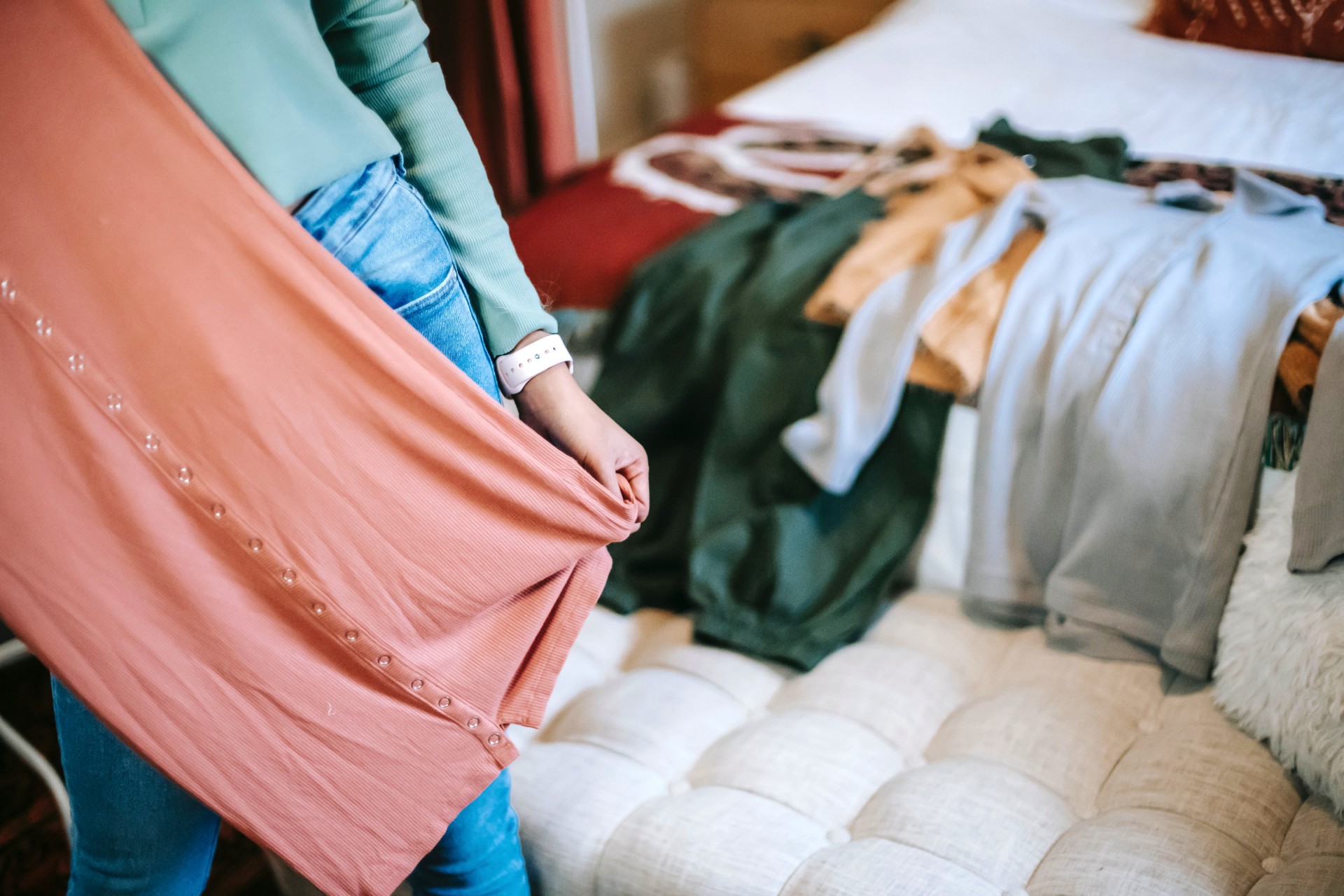The pandemic is changing the parameters of how to dress for a job interview. New fashions and old traditions can make job hunting a puzzle.
Should you still “dress for success?”
Despite what has been reported in the news media, it’s not always that easy to get a new job. There are many help wanted signs in store windows.
But don’t let that fool you. Employers, whether for a restaurant or a corporate office, are still rather choosy when it comes to welcoming a new member into their business family. And, of course, the pandemic has changed the interview paradigm.
Not too long ago, men needed to appear in dark conservative suits wearing a white shirt and a dull tie. Florsheim was the preferred shoe brand. Facial hair was verboten, and hair length was short. For women, a pastel or white blouse with a jacket and a knee-length skirt was expected. Sensible shoes were mandatory. Prospective employees needed to look neat and sharp, well-groomed, clean-shaven, and all American. Otherwise, they might be looking for work for a long, long time.
But today, dress standards for job interviews are somewhat more relaxed. This is due in part to the multi-racial/cultural aspect of America’s workforce today. This means that and interviewee might be wrapped in a hijab or sporting a Rastafarian hat. Most initial job interviews take place over the phone or online. Everyone sounds well dressed over the phone if they speak with clarity and confidence. Online job interviews, such as on Zoom or Facetime, allow the interviewee to wear something a bit more relaxed than a business suit.
So what are the standards, if any, for your post-pandemic interview?
This shortlist comes from corporate sources and fashion experts. They know their stuff. Their expertise with help you land the job you want.
1. When in Rome . . .
Smart job hunters will always scout out their potential employer’s workplace and corporate culture online before the first interview. Restaurants and other service industry places may require some kind of uniform. If that’s the case, then your initial appearance need not be anything more than a clean blouse or shirt and modest slacks or skirt.
However, when looking at an office or corporate job, you should make note of how the current employees dress and then mimic that same style during the job interview process.
In other words, if their online image stresses expensive suits and Dolce & Gabbana dresses, you’d better be prepared to show up to your interview dressed like Cary Grant or Deborah Kerr. Conversely, if your investigations reveal that workplace dress is rather casual at all times, then you should be safe showing up in a polo shirt and slacks or a casual blouse ensemble. (Although it is sexist, women are at a disadvantage if they show up to their interview in dress slacks unless, of course, they are interviewing for a VP position.
2. Break the smartphone habit!
According to most HR people, interviewees who are constantly looking at their phones, texting, or even replying to a text during the actual interview are growing more common and irritating. The best way to sabotage your own chances is to ignore the interviewer while interacting with your mobile device.
So when you show up for an in-person interview, make sure your mobile device is turned off and put away. It should not be a part of your wardrobe. The only exception to this might be if the interviewer needs to know your skills with social apps, such as interviewing for a social media manager position.
3. It shouldn’t have to be mentioned . . .
Personal hygiene is still the most important aspect of the face-to-face job interview. If you’ve been at the gym before the interview, you should know enough to shower off before the interaction. Avoid strong perfumes and aftershaves. Avoid cheap perfumes. It’s best to show up with no odors whatsoever. Breath mints are your best friend at a face-to-face job interview.
4. To mask or not to mask…that is the question.
The simple and short answer is, if your interviewer is wearing a mask, you should wear a mask too. If your interviewer is not wearing a mask, you don’t have to.
However, you should ask the company gatekeeper about their masking policy before the interview starts. Is a mask required? Is it not required? What rationale do they use for their masking policy and is it one that you can live with?













